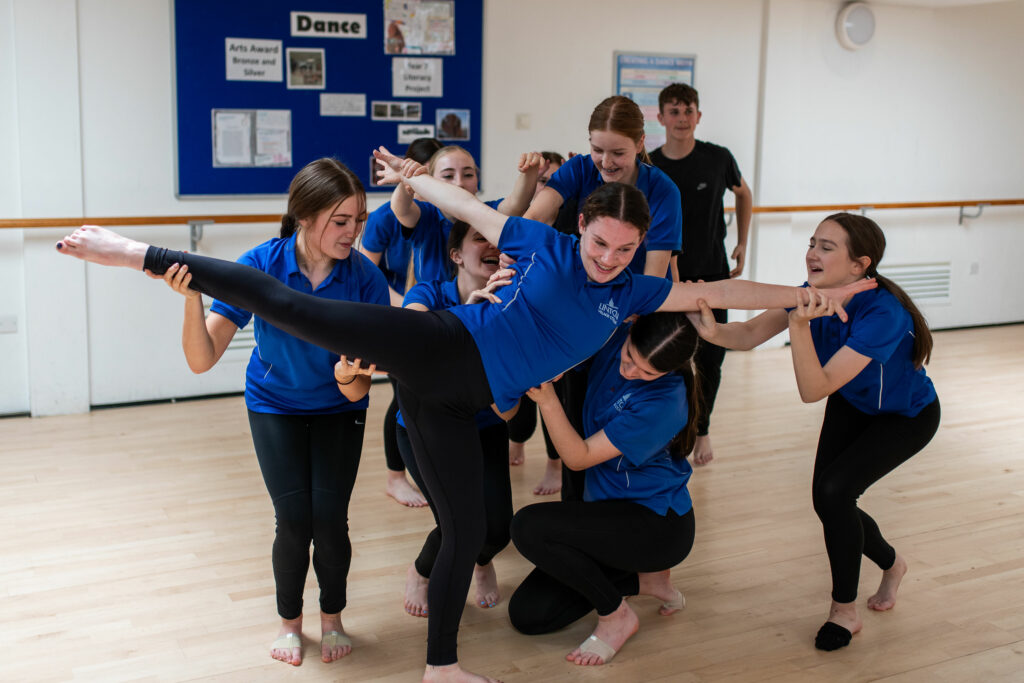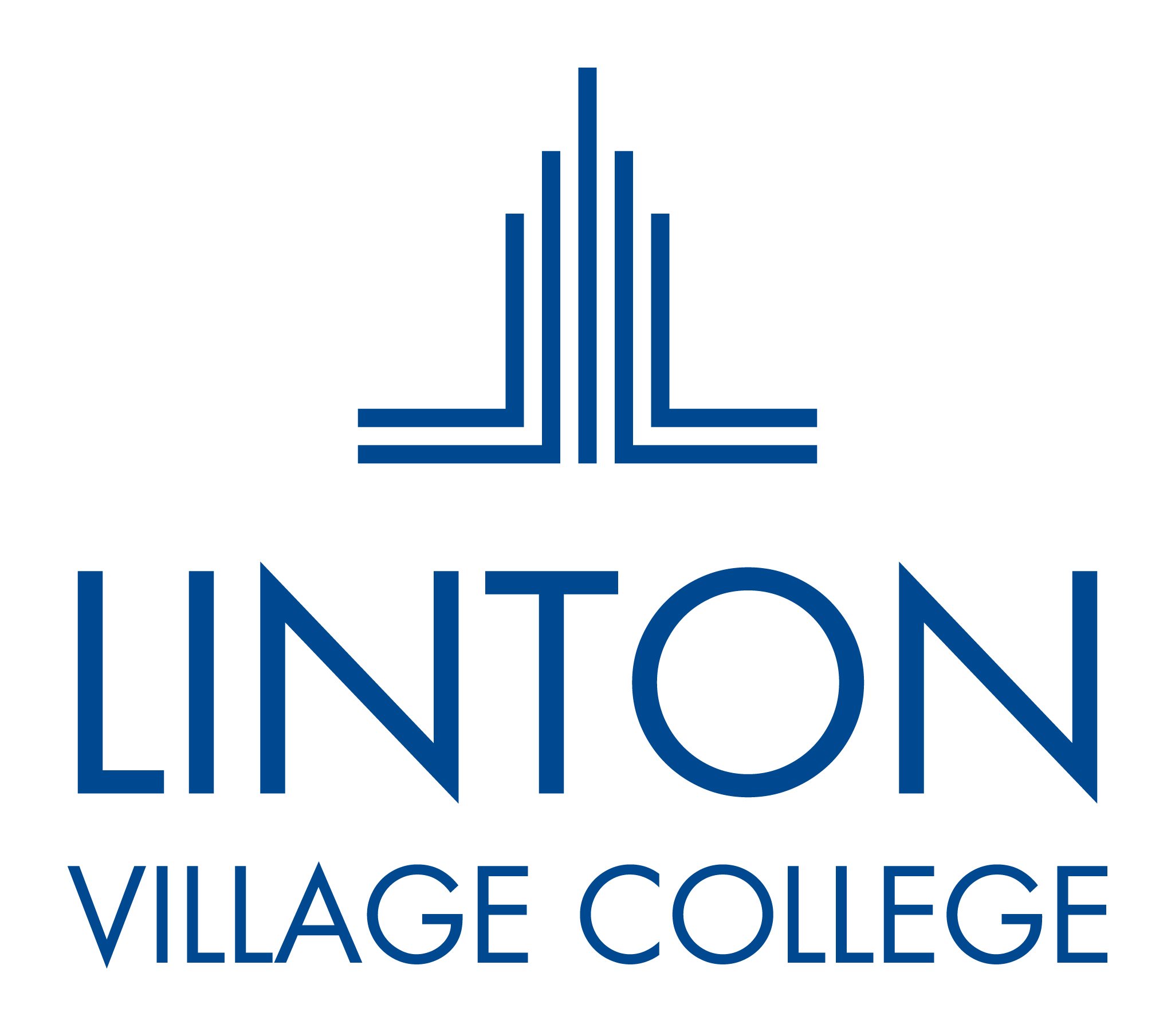Dance
Ethos and Aims
Dance at Linton Village College aims to instil a love of performance, choreography and appreciation in a wide variety of dance genres for all students. Students develop key skills such as team-work, independence and leadership skills through a spiralling curriculum at KS3 and KS4. The department aims to provide students with a wide range of experiences, opportunities to work with professional dancers/companies in addition to participating in local/national competitions.
Students are encouraged to participate in one of the wide ranging extra-curricular opportunities. These opportunities include Dance Clubs for Years 7 & 8, Lower and Upper School Dance Companies and a Hip-Hop class. Dance also features in the annual school production which students in all years may audition for.
Key Stage 3
In Years 7 and 8, students are taught in mixed ability groups. Students have one lesson of dance per fortnight on their timetable. At the end of Year 8, students can opt to study dance as one of their option subjects in Year 9. Students who choose dance in Year 9 have three lessons of dance per fortnight.
Year 7
Autumn Term A – Matilda the musical
In this topic, students explore creative skills with a focus on characterisation, use of tableaux and transitions. Small group work will be used throughout the unit to develop team building skills.
Autumn Term B – Carnival
Students explore the origins of carnivals. As a class, students then creatively incorporate contact work into a carnival parade.
Spring Term A and B – ‘Charlie and the Chocolate Factory’ performance preparation
Charlie and the Chocolate Factory is creatively explored as a starting point for a summer performance. Each class choreographs a dance based on a different section of the novel. During the second half of the term, all students learn a whole year group dance based on ‘Oompa Loompas’
Summer Term 1 – Final rehearsals for outdoor performance of ‘Charlie and the Chocolate Factory’
Students will refine the performances devised in the summer work. Year 7 deliver their performance to an invited Year 6 audience.
Summer Term 2 – ‘Diversity’ dance group
In this topic, students explore the choreographic concepts explored in a range of works by the group ‘Diversity’. Students develop their own creative ideas whilst using Diversity choreography as a springboard.
Year 8
Autumn Term A – Vernacular dance forms
In this scheme of work, students explore a variety of dance forms which originated in non-theatrical dance forms. The origins, context and culture from which the dance forms originated are also explored. Examples of dance forms are Gumboot, Capoeira, Street Dance and The Haka.
Autumn Term B – Street Dance
Students explore the Street Dance genre. A highly technical routine is delivered in the genre in addition to students exploring choreographic skills. Contact work is also introduced within the routine.
Spring Term A – Contact work
Students safely explore how to use contact work as a choreographic device.
Spring Term B – Human Rights/Interrogation (PSHE cross-curricular project)
In this topic, the themes of human rights/interrogation are explored through the work of choreographer Christopher Bruce. These themes are also studied during this half term in PSHE.
Summer Term A – Fitness work
The physical skills of stamina, strength, flexibility and balance are developed over the course of this half term.
Summer Term B – Banksy
The art work of Banksy is explored as a stimulus. Students create innovative choreography based on both Banksy’s art work in addition to their own art work.
Year 9
In Year 9, students explore performance and choreography work through a wide variety of genres. A professional performer delivers a workshop to Year 9 students to raise their level of aspiration. Most recently, Richard Woodford has delivered workshops (credits include Phantom of the Opera, We Will Rock You and Les Mis). During this workshop, students engage in a QA& session about the industry.
Students work towards their Silver Arts Award throughout the year. Year 9 students also lead workshops for local primary school students.
Key Stage 4
Students can select GCSE Dance as one of their GCSE option subjects. The course develops students’ performance and choreography work through study of professional choreography work. Genres include Hip Hop, Contemporary, Ballet and Improvisation.
Extra-curricular opportunities such as workshops, trips and Upper School Dance Company are offered at KS4 to challenge students beyond the demands of the curriculum.
GCSE Dance
The AQA Dance GCSE is 60% practical and 40% theory.
Component 1 – Practical
Performance (30%) – Set Phrases through solo performance (one minute duration).
Choreography (30%) – Solo or group choreography (2 ½ to 3 ½ minutes duration).
Component 2 – Dance Appreciation
Written examination worth 40% of the GCSE (1 hour 30 minutes).
Assessed on knowledge and understanding of choreographic processes and performing skills. Critical appreciation of own work. Critical appreciation of professional works.

